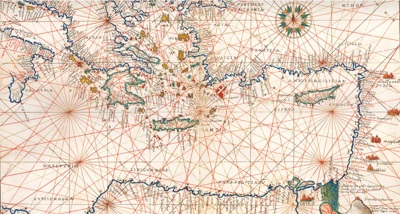
Method of peer review
double-blind undertaken by a specialist member of the Board or an external specialist
Keywords
Migration, displacement, connected histories, translation, cultural entanglements, global visual and material culture, history of emotions, history of knowledge, 15th-19th centuries, worldwide
Accepts Contributions in Open Access
'Histories in Motion’ fosters original research in the fields of migration studies, cultural history, visual and material studies, and the history of emotions. Its aim is to explore the entangled histories and experiences of displacement of people, objects, images, and ideas between the fifteenth and nineteenth centuries with a particular focus on achieving a greater understanding of the powerful emotional responses of displaced individuals and peoples and the communities they orbit and join as well as of the extent of their cultural interconnectedness.
The series seeks to investigate historical case studies of displacement through drivers such as exploration, trade, missionary work, diplomacy, the exchange of information and knowledge, war, imperialism, religious persecution, environmental and social catastrophe as well as issues raised by the coexistence of different communities in the same city or region.
The dominance of economic and political analysis of migration tends to downplay socio-cultural and emotional factors. But the decision to migrate or to settle entails social and emotional constraints and resources as well as economic and political motivation and one of the chief aims of the series is to explore these social and personal dimensions of migration.
The series publishes scholarly monographs, collections of essays and critical editions (to be included as part of broader studies) of previously unpublished or out of print relevant primary sources.
-
EDITORIAL BOARD
Editorial Board
Giovanni Tarantino, University of Florence
David Do Paço, IRHiS UMR 8529, CNRS-Université de Lille
Paola von Wyss-Giacosa, University of ZurichAdvisory Board
Tülay Artan, Sabanci University, Istanbul
Daniel Barbu, CNRS, Paris
Susan Broomhall, Australian Catholic University
Albrecht Burkardt, Université de Limoges
Ian Coller, University of California Irvine
Kathryn de Luna, Georgetown University
Cristiana Facchini, Università di Bologna
Indravati Félicité, Université Paris Diderot
Martin Mulsow, Universität Erfurt
Adrien Paschoud, Université de Neuchâtel
Giorgio Riello, European University Institute
Joan-Pau Rubiés, Universitat Pompeu Fabra, Barcelona
-
AUTHOR INFORMATION
Main Language: English
Double-blind undertaken by an external specialist (i.e. one appointed by the Board)
All volumes in this series are evaluated by an Editorial Board, strictly on academic grounds, based on reports prepared by referees who have been commissioned by virtue of their specialism in the appropriate field. The Board ensures that the screening is done independently and without conflicts of interest. The definitive texts supplied by authors are also subject to review by the Board before being approved for publication.
English short references can be found at: https://www.brepols.net/permalink/stylesheet-short-refsSubmissions should be addressed to:
Giovanni Tarantino, giovanni.tarantino@unifi.it